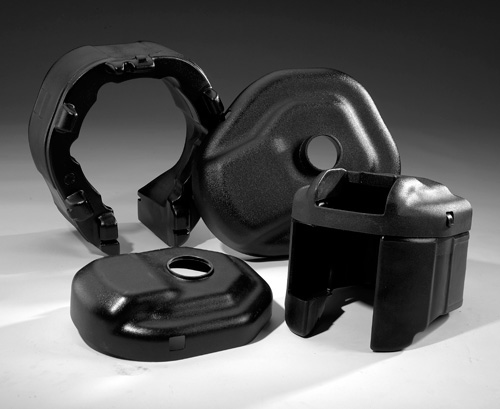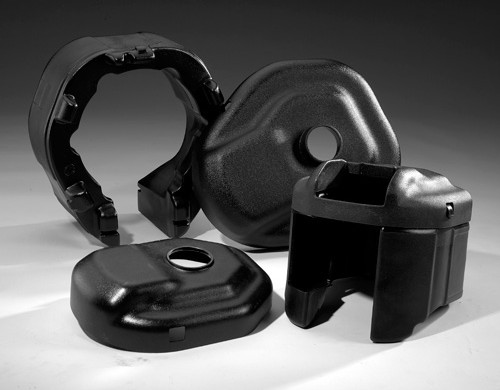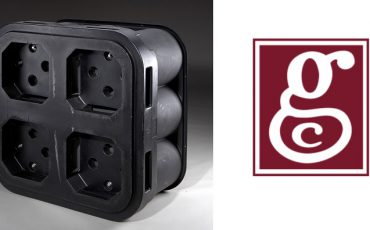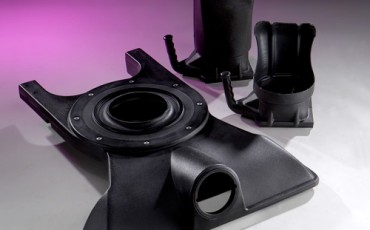
Molded-in holes can reduce part costs by eliminating the need for secondary machining. The benefits don’t end there. Generally, holes that are molded into a plastic part are stronger than holes that are machined. Machined holes are also subject to variations during drilling or routing. By contrast, molded-in holes have a size and position that are fixed because they’re part of the mold.
Rotational Molding vs. Injection Molding
Rotational molding supports the use of holes that are molded through, into, and onto plastic parts. Injection molding can also produce molded-in holes, but at the risk of creating weld lines that can weaken the holes or detract from their appearance. Rotomolding won’t produce weld lines like this, but there are still design guidelines to consider.
Inward-Projecting vs. Outward Projecting Holes
Holes that project into a rotomolded part are the easiest to produce. They’re formed when the plastic coats core-pins that project inward. Outward-projecting holes are more difficult to produce, but they’re not impossible to create. There’s a difference between outward-projecting open holes and outward-projected closed holes, however.
Outward-Projecting Open Holes
Outward-projecting open holes are produced by molding a closed, hollow tube that projects from the surface and is cut-to-length after molding. The outside diameter of these holes must be at least six times the nominal wall thickness. The inside diameter is harder to control because the holes are free-formed instead of molded over the core pin.
Outward-Projecting Closed Holes
Outwardly-projecting blind holes can be used with threaded fasteners to locate and anchor a tank, or to mount pumps or motors. If your part requires a blind boss, remember to design it with enough space around the core pin to accommodate the flow of plastic material. The open space for this plastic must be at least three times the part’s nominal wall thickness.
Ask Gregstrom About Molded-In Holes in Rotational Molding
Gregstrom Corporation of Woburn, Massachusetts (USA) is a third-generation, family-owned plastic manufacturer that provides design assistance for molded-in holes in rotational molding. We can also provide the tooling that you need and recommend ways to control costs. To learn more about how we can help you, contact us.



